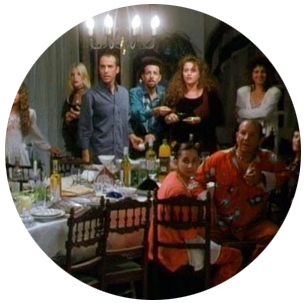Dangerous Acts (1998)
Director: Shemi Zarhin
The Jump
A man is about to jump from the roof of a building. In the building lives a woman. The man says to the woman, "if you don't forgive me, I'll jump". The woman says nothing.
This is one of this psychological thriller's breathtaking climaxes, staring 2 of Israel's leading film and theater actors, Gila Almagor and Moshe Ivgy, darkly and masterfully shot by veteran David Gurfinkel, and featuring an exciting, complex orchestral score which won the Israeli Academy Award for Best Film Score. The film won 7 Academy Awards, including Best Director.
Composed, orchestrated and conducted by Ady Cohen
Performed by Ady Cohen and the Raanana Symphonette Orchestra
Winner - the Israeli Academy Award for Best Music 1998
